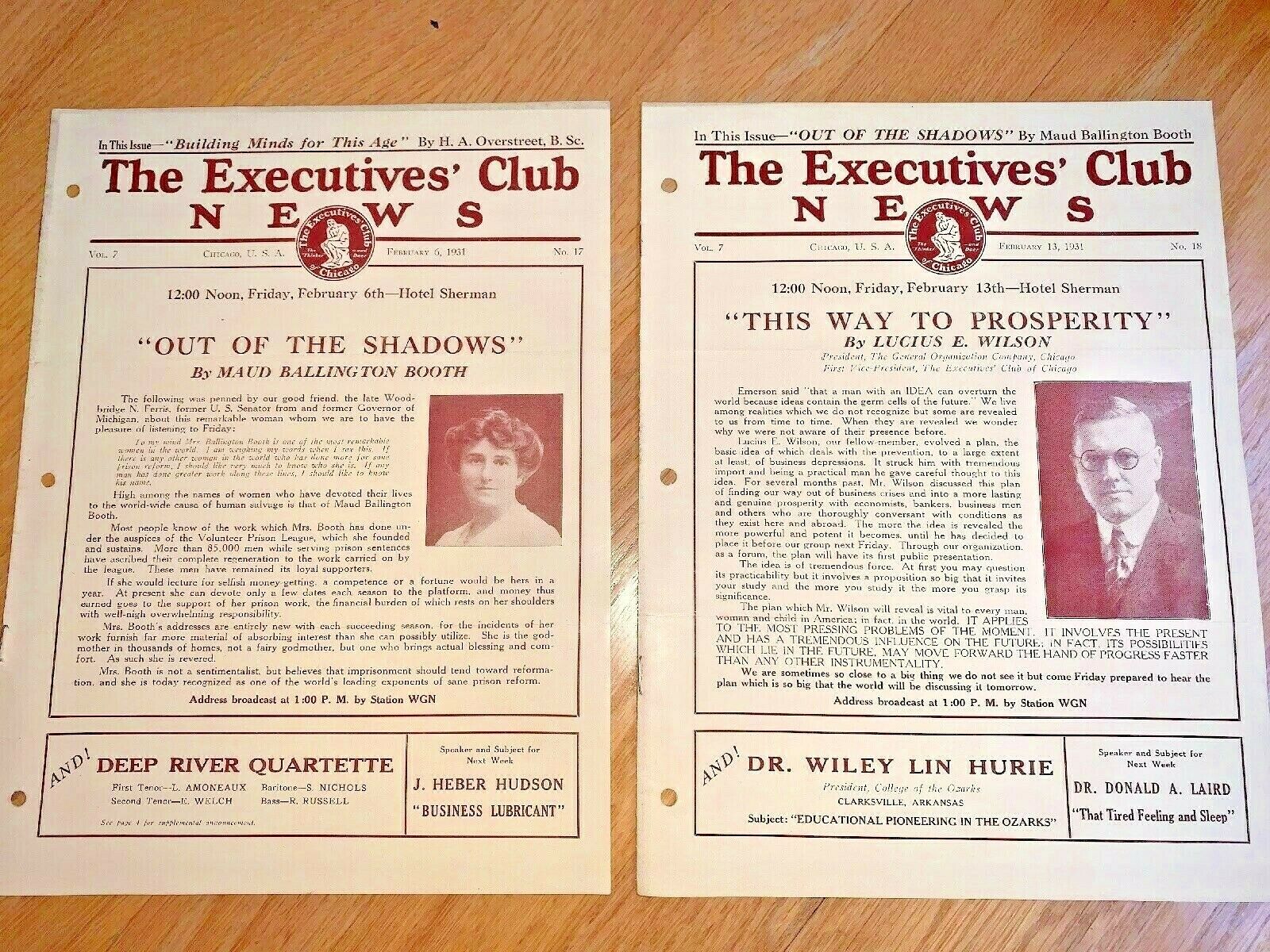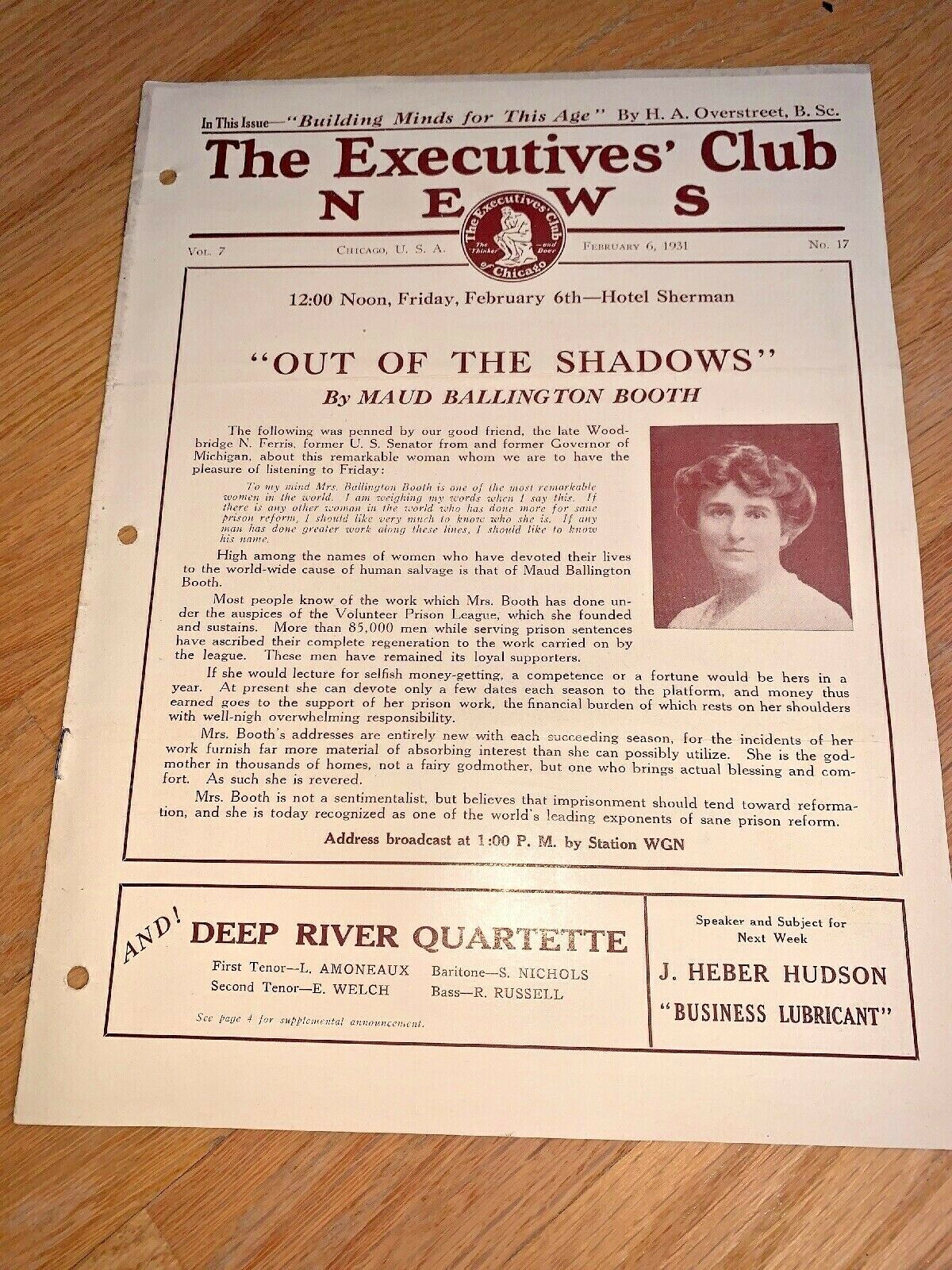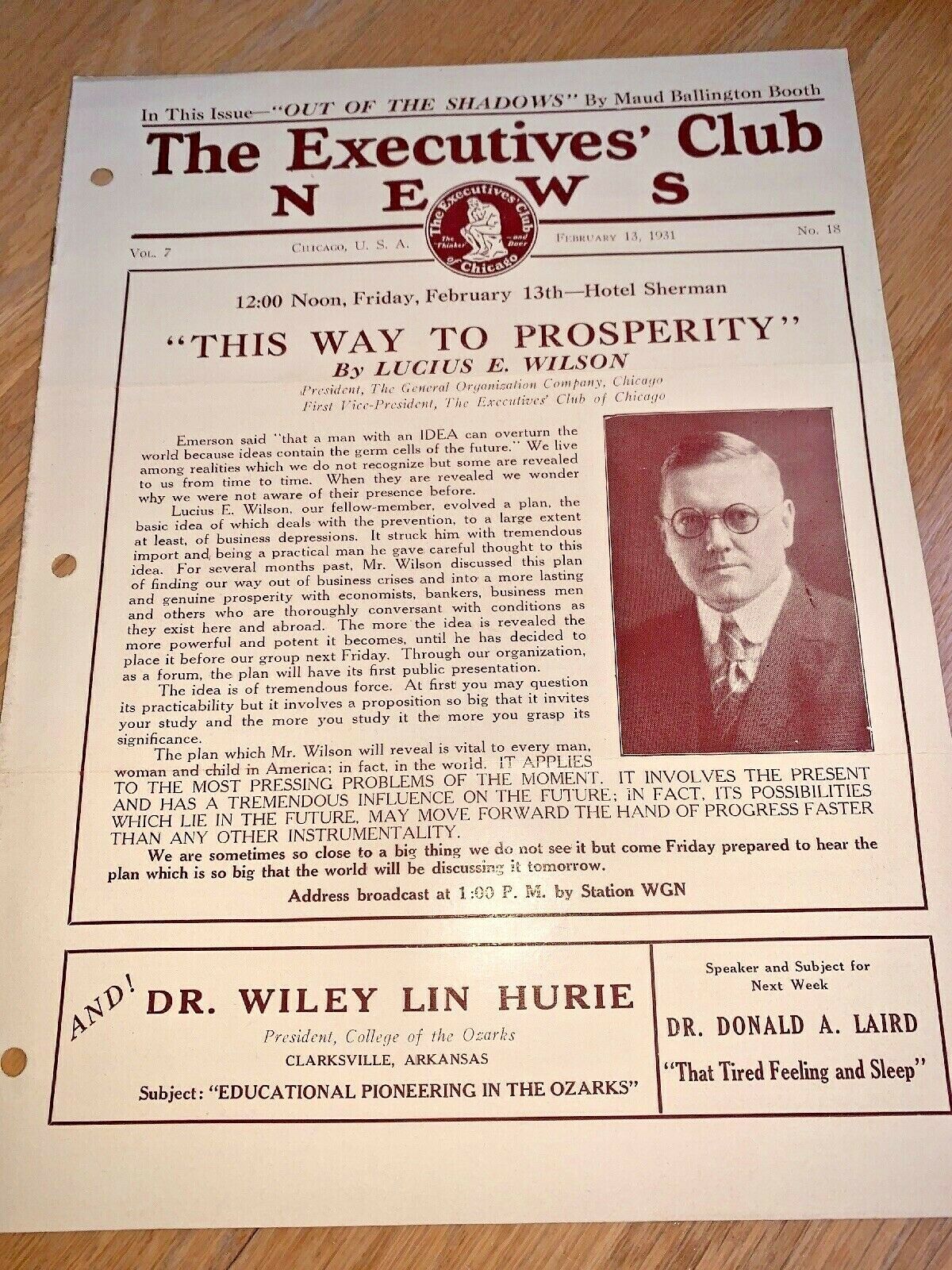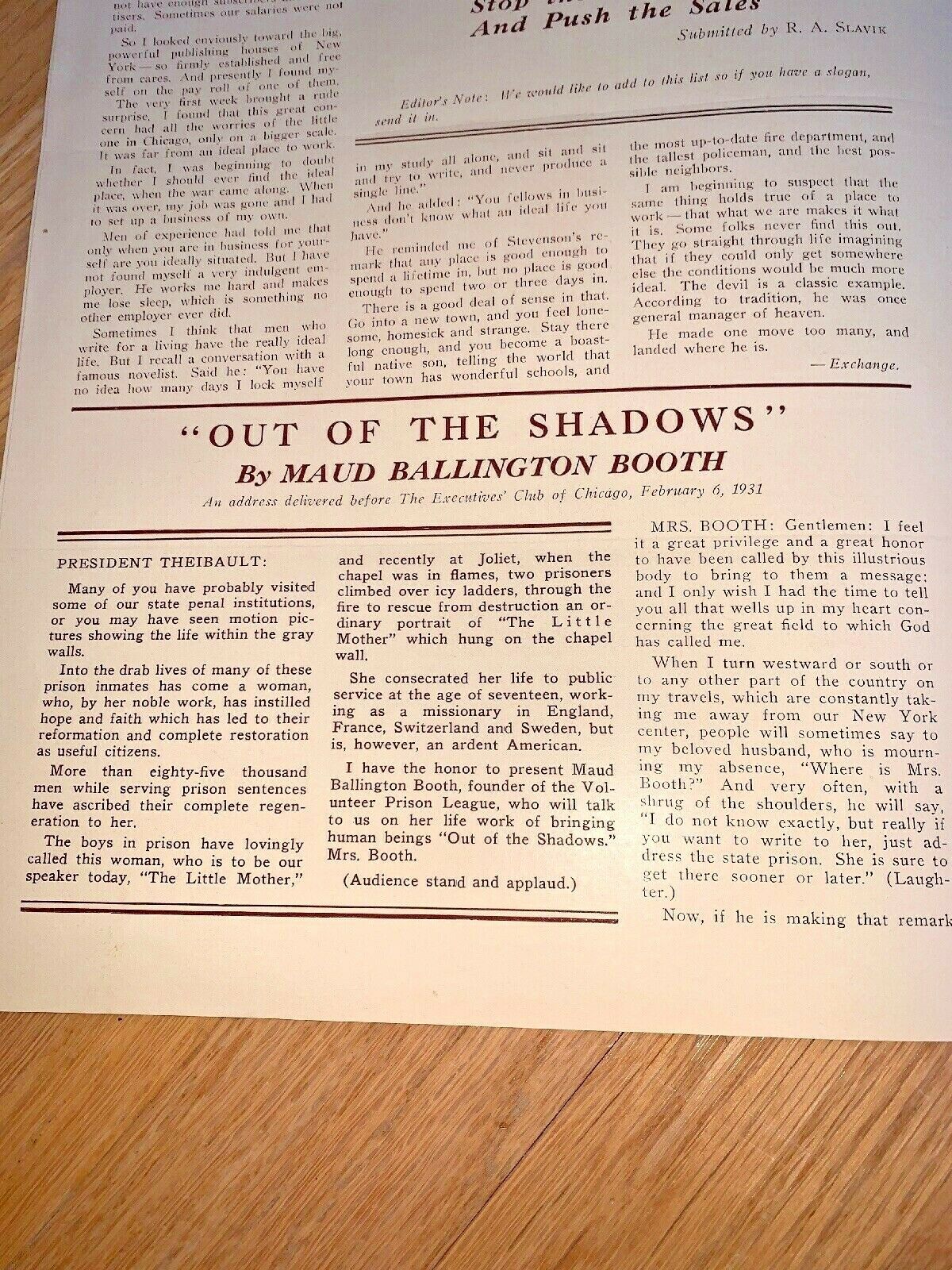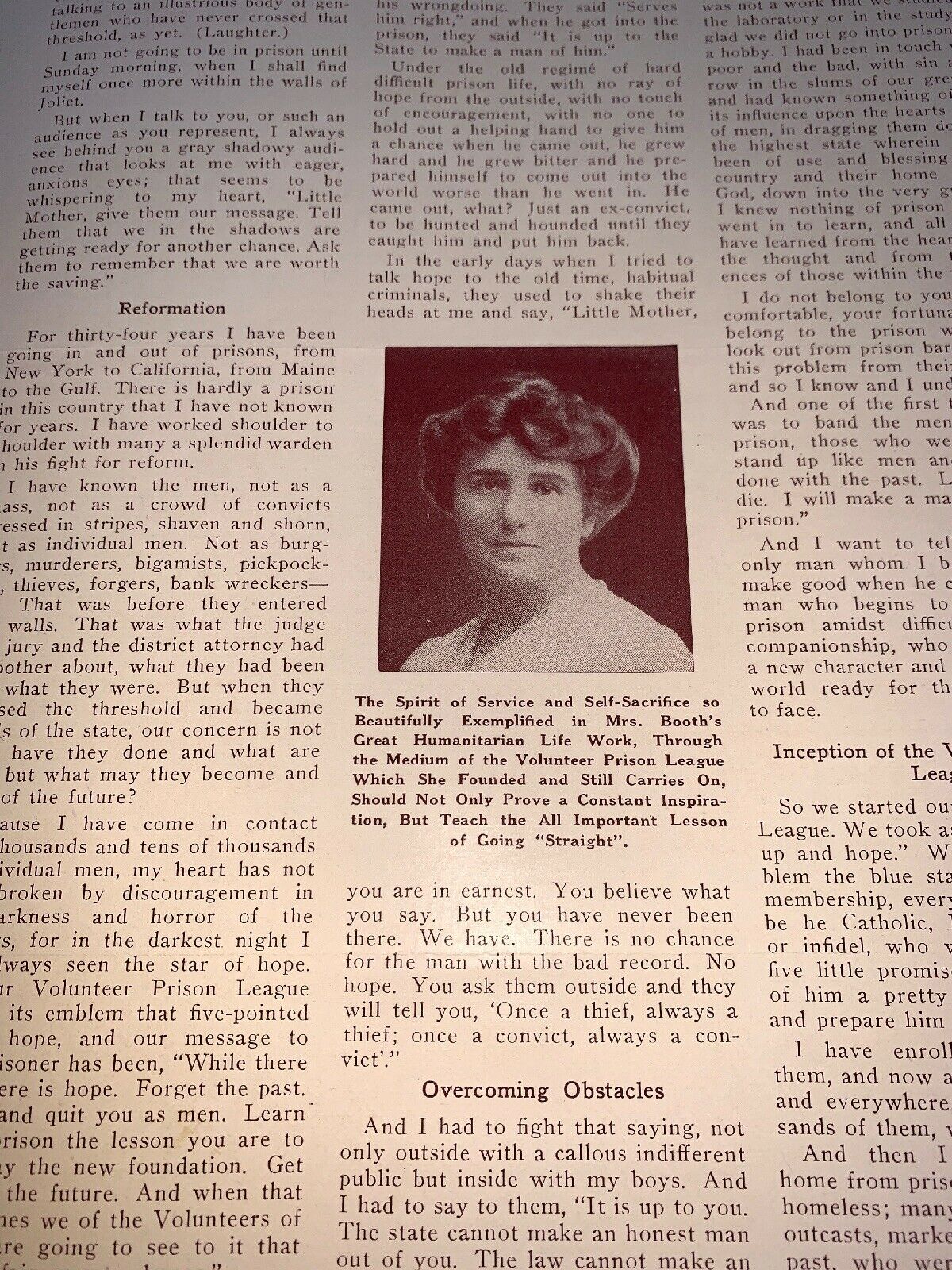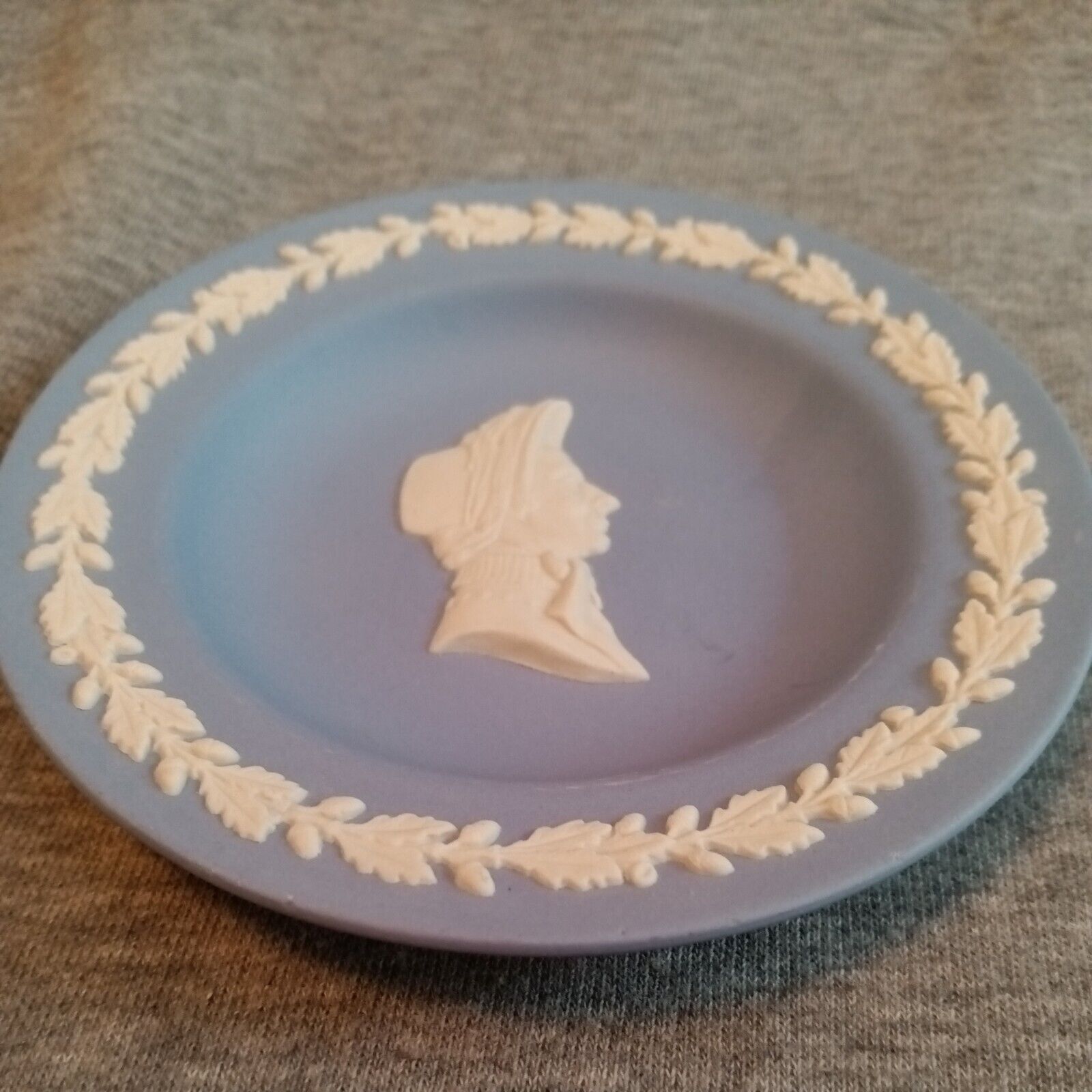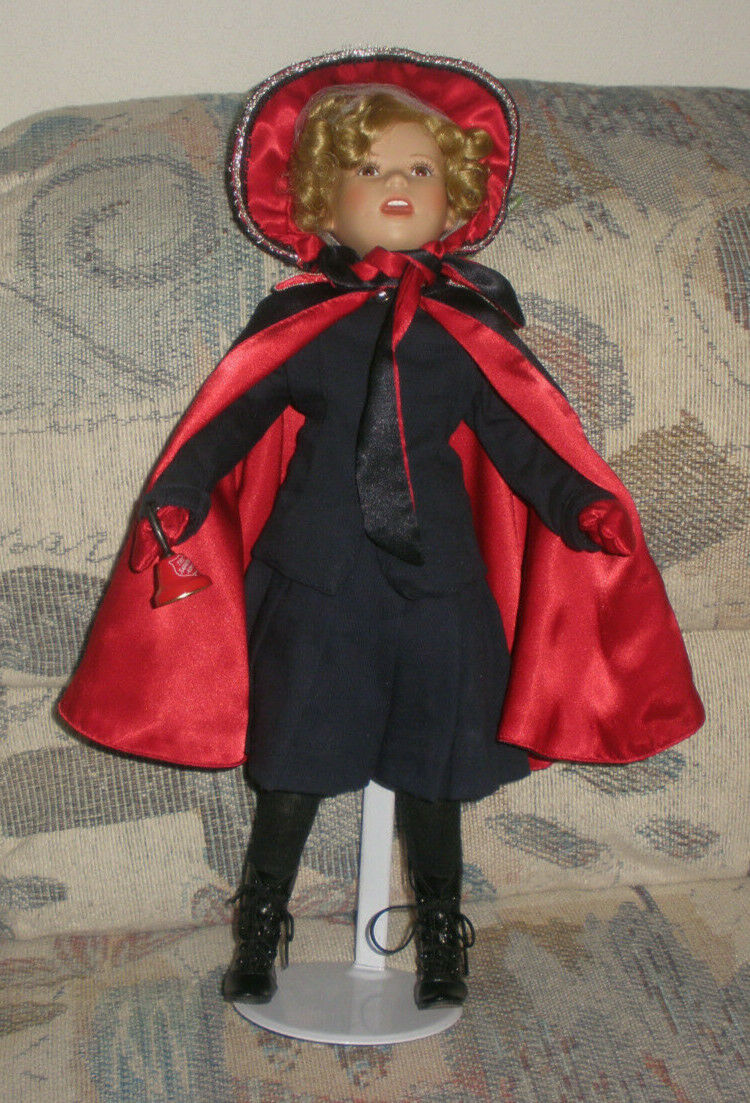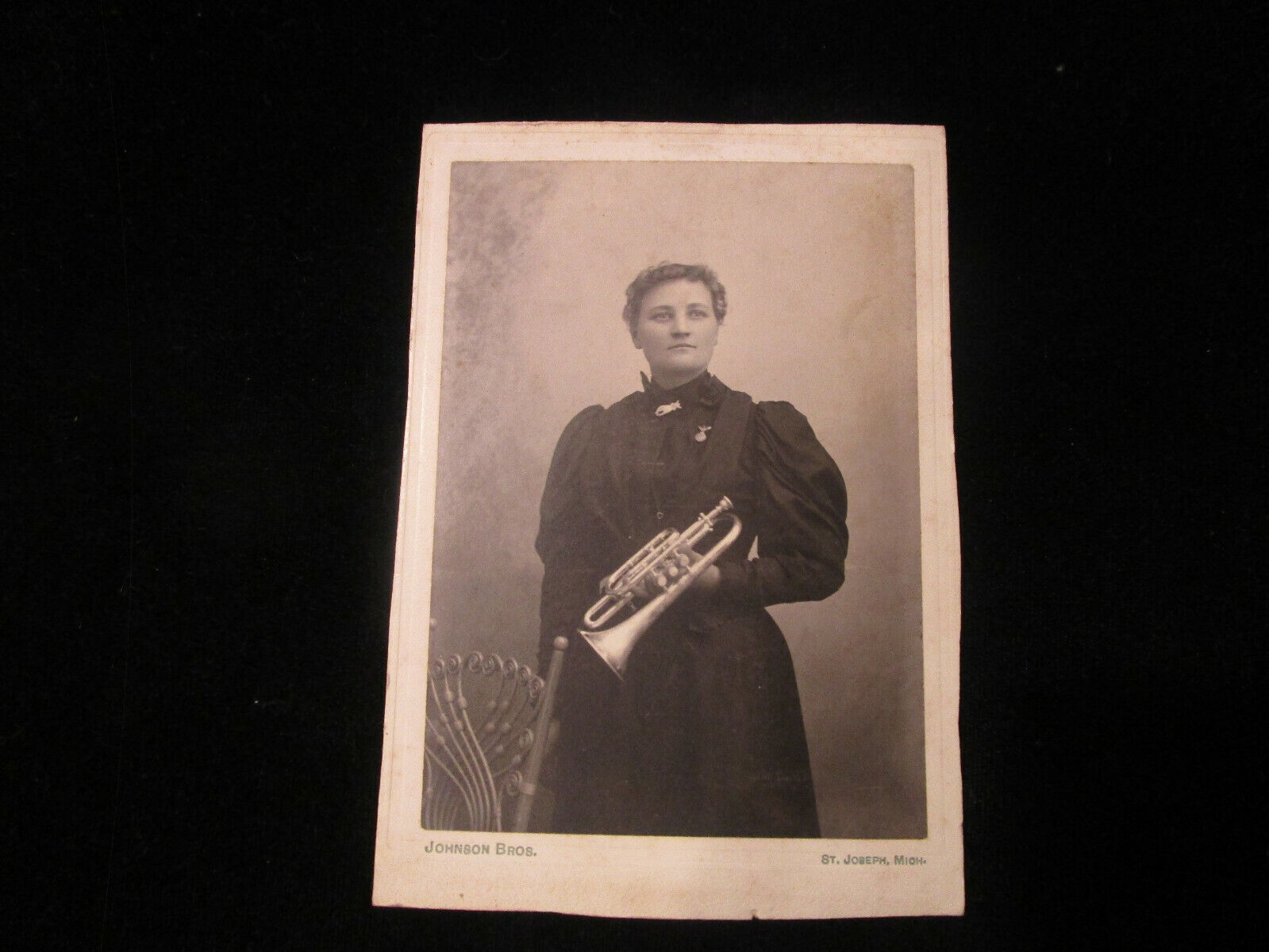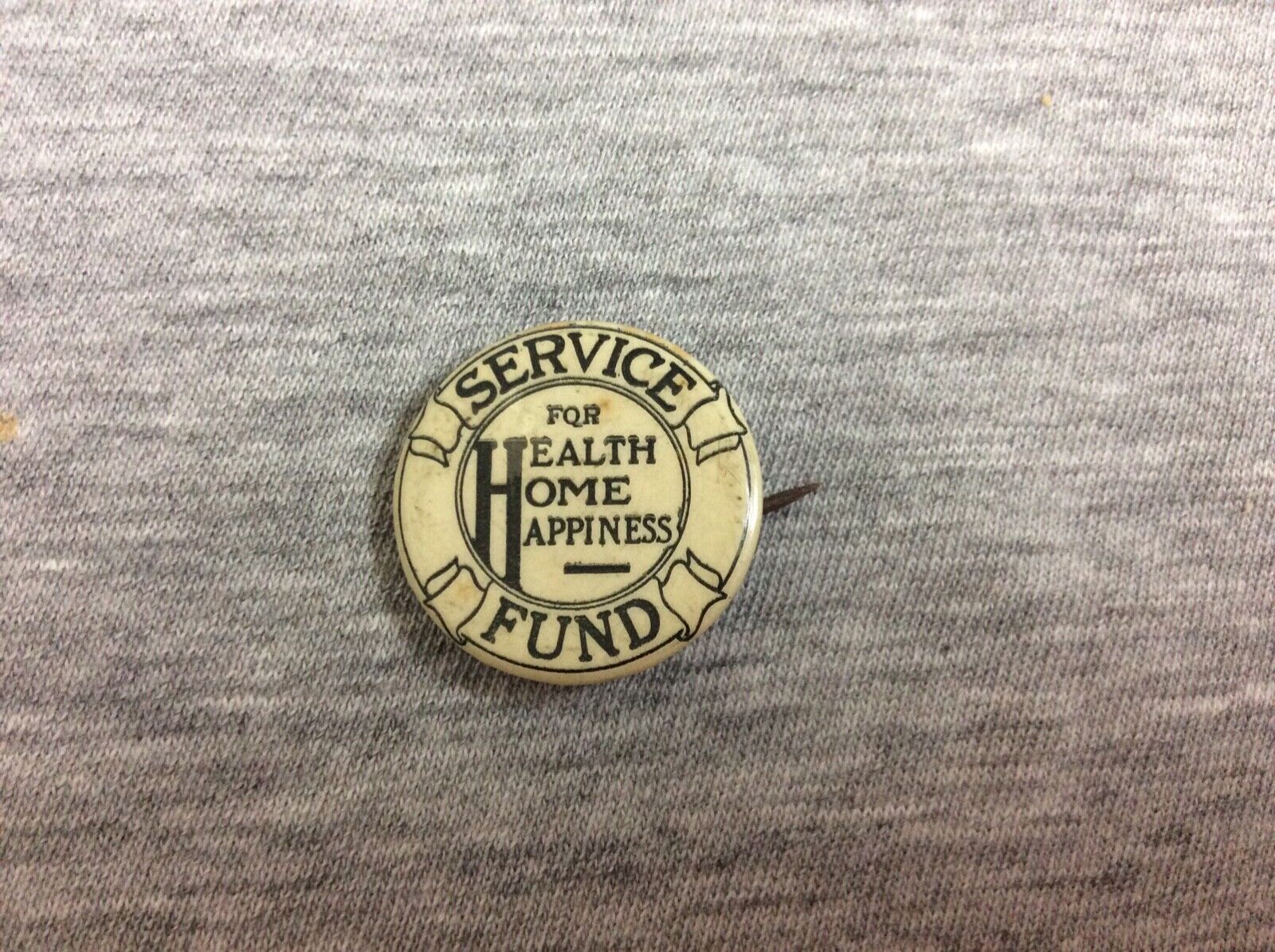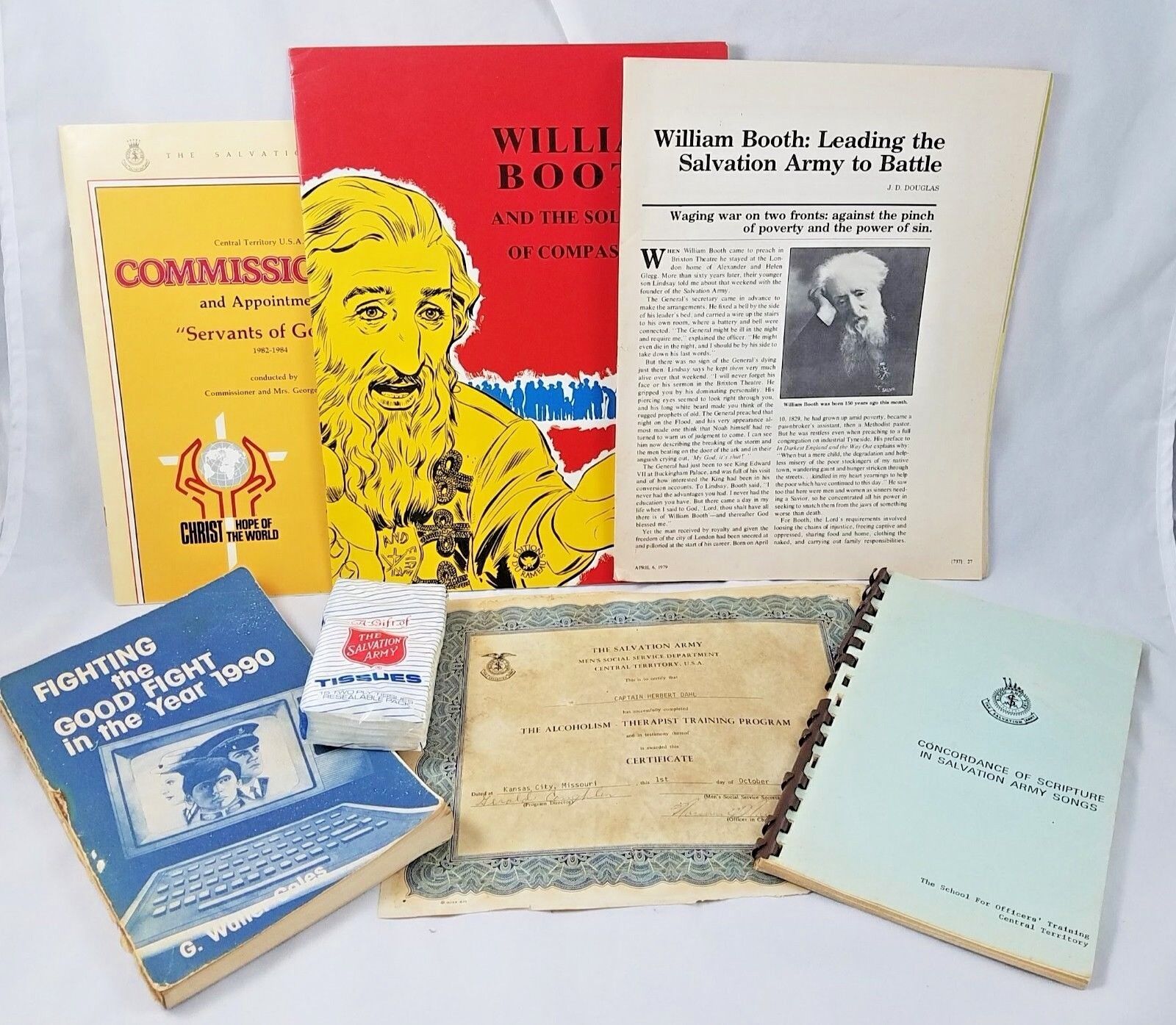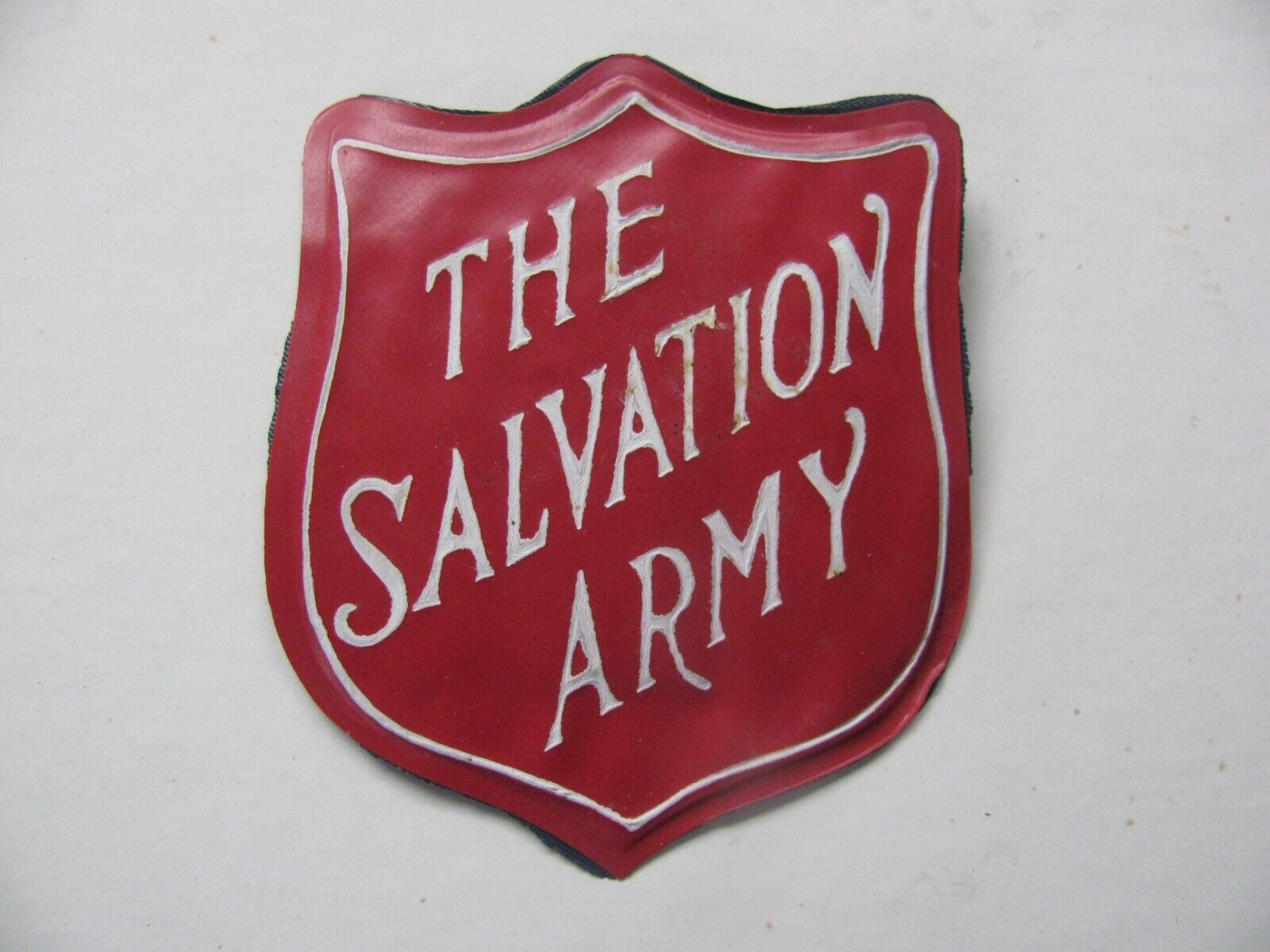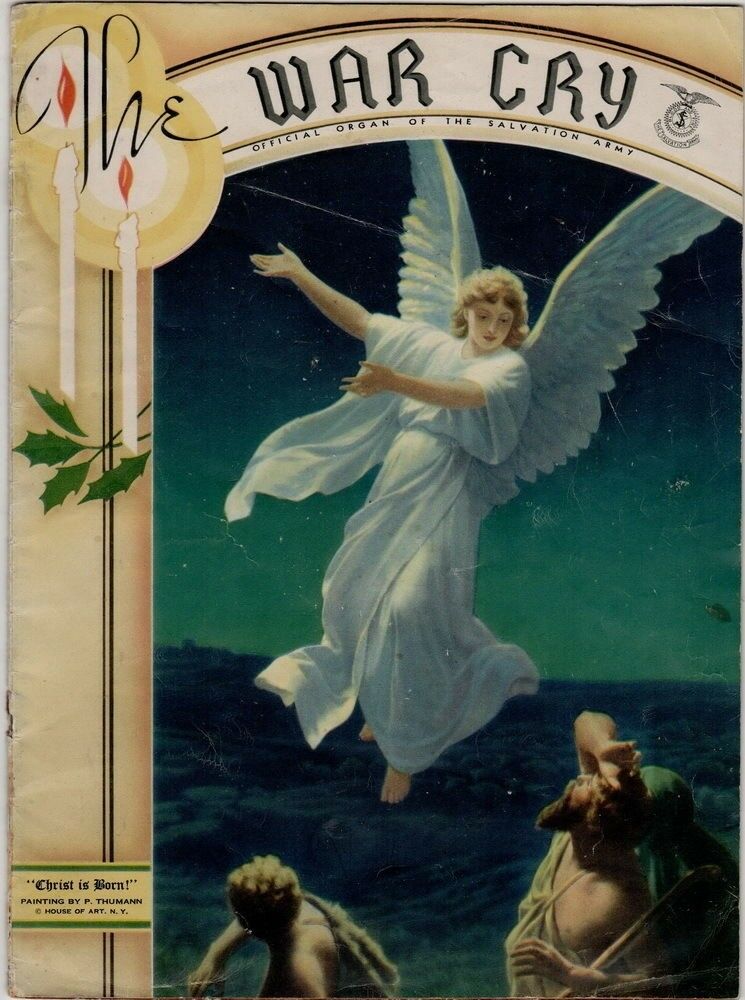-40%
1931 MAUD BALLINGTON BOOTH - OUT OF THE SHADOWS @ CHICAGO EXECUTIVES' CLUB
$ 7.89
- Description
- Size Guide
Description
This listing is for2- THE EXECUTIVES' CLUB, CHICAGO NEWS LETTERS from 1931 with a presentation titled "OUT OF THE SHADOWS
"
The newsletters introduced the speaker of the week and the following week's newsletter, included the detailed presentation.
The presentation for the week of February 6, 1931 was:
"OUT OF THE SHADOWS"
BY MAUD BALLINGTON BOOTH
In the February 13, 1931 issue, it notes that "Into the drab lives of many of these prison inmates has come a woman who, by her noble work, has instilled
hope
and faith which has led to their reformation and complete restoration as useful citizens."
At this time, Ms Booth oversaw the Volunteer Prison League". Earlier, she was a leader of the
SALVATION ARMY.
Each newsletter is 8 pages long and are both, in great condition.
Some information about the Chicago Executives' Club:
Established before World War I, The Executives’ Club of Chicago has witnessed this Midwest city’s rise as a magnet for global businesses over the past 100+ years. Today, members acknowledge The Club as one of America’s top business forums
1911—1939
Distinguished by its sandy brick facade and the elegant white mantle of its top floors, the Hotel Sherman stood on the site that now holds the Thompson Center. Throughout the 1910s and roaring ‘20s, the hotel was one of Chicago's premier nightspots. While the live jazz played there wafted through its College Inn restaurant and attracted celebrities, tourists, and members of high society in the evenings, it was during the day that members of The Executives’ Club met each week in a small banquet room.
In its early years, The Club’s core members discussed among themselves the affairs of the day and the business impact. In sharing their experiences, they sought ways to learn from one another and work with each other on the business front. Perhaps they discussed new ventures that could benefit from the success of Chicago’s retail companies, or examined the strategies that enabled utilities magnate Samuel Insull, through his leadership of Commonwealth Edison, to expand the company’s hold on electric power in the Midwest.
Like many other Chicagoans, their attention in 1914 surely turned to how the U.S. decision to enter World War I in support of Great Britain, France, and Russia affected the city. With many of the area’s young men sent overseas after training at Fort Sheridan and the Great Lakes Naval Training Center north of the city, employment opportunities emerged for women and African- Americans. The Great Migration of African-Americans from the South to industrial cities like Chicago continued after the war ended in 1918.
PLEASE SEE MY OTHER LISTINGS AND STORE FOR SIMILAR ITEMS AND COMBINE FOR THE LOWEST POSTAGE.
Please feel free to e-mail any questions to me.(20)
